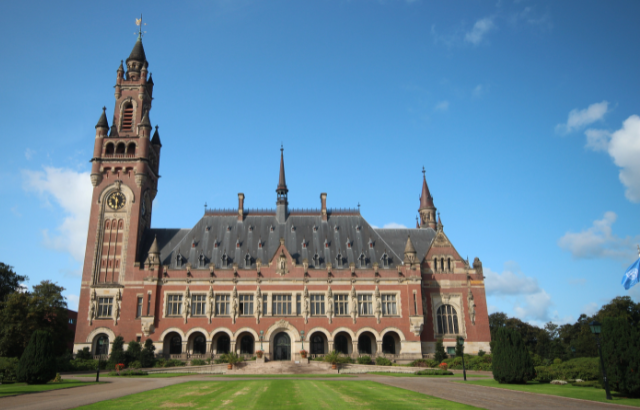Family courts failing to uphold human rights for victims of domestic abuse, according to Queen Mary report
Family Courts are failing to recognise and protect survivors’ human rights by not giving victims of domestic abuse a safe and fair hearing which is putting their children’s safety at risk, according to a joint report by Women’s Aid and Queen Mary University of London.

Survivors of domestic abuse face a lack of protections within family courts according to a new report from Women's Aid and Queen Mary University of London.
The report, "What about my right not to be abused?" Domestic abuse, human rights and the family courts, found that nearly a quarter of suvivors (24 per cent) reported that they had been cross-examined by their abusive ex-partner during court hearings, which breaches survivors’ human right to be free from degrading treatment.
The report also uncovered systematic gender discrimination and a culture in the family courts that silences women by failing to uphold the human rights of survivors.
No special measures for protection in court
Three in five survivors (61 per cent) reported that there were no special measures – for example, separate waiting rooms, different entry/exit times, screen or video link – in place in the court despite allegations of domestic abuse in their case.
According to the report, the lack of measures to protect survivors from abuse during the court process negatively impacts on their ability to give evidence and prevents them from effectively advocating for their children in court.
Risk to children's wellbeing
The report also revealed a clear link between survivors’ experience of domestic abuse, including coercive control and post-separation abuse, and risks to children’s wellbeing and safety. Over two thirds of survivors (69 per cent) reported that their abusive ex-partner had also been emotionally abusive towards their child(ren), while almost two in five survivors (38 per cent) reported that their abusive ex-partner had also been physically abusive towards their child(ren).
Despite these figures, unsupervised contact with an abusive parent was most likely to be awarded in the cases outlined in the report. This reinforced findings from a recent report by Cafcass and Women’s Aid which revealed that unsupervised contact was ordered at the final hearing in almost two in five cases where there was an allegation of domestic abuse (39 per cent).
In the most extreme cases, contact decisions threatened survivors and their children’s human right to life when contact orders placed them in unsafe proximity to abusive ex-partners or confidential information about their address or location was revealed during the court process. The report argues that survivors’ lack of access to a fair hearing is putting children’s wellbeing and safety at risk.
Urgent attention needed
Professor Shazia Choudhry, Professor of Law at Queen Mary University of London, said: "When the Human Rights Act was passed in 1998 it was heralded as an opportunity to "bring rights home" in order for British citizens to argue for their human rights in British courts. What this exploratory research has demonstrated is that this has not been the case for a number of women survivors of domestic abuse in the family courts.
"This research indicates that the human rights of these survivors to their family life and to be free from discrimination are not being given sufficient effect in the domestic family courts. Moreover, there is evidence of the family courts failing in their responsibility to prevent and investigate acts of violence towards these survivors and facilitating or failing to challenge a climate of gender discrimination within the courtroom.
"The findings of this research are deeply concerning and requires urgent attention from both the judiciary and the legal profession."
The report has been released to coincide with the closing of the government’s consultation on the Domestic Abuse Bill. Quantitative and qualitative data was collected from 72 women living in England. Their experiences of family courts confirms and builds on findings from existing research in this area.
More information
Find out more about the School of Law at Queen Mary University of London.
Related items

31 October 2024
For media information, contact:

